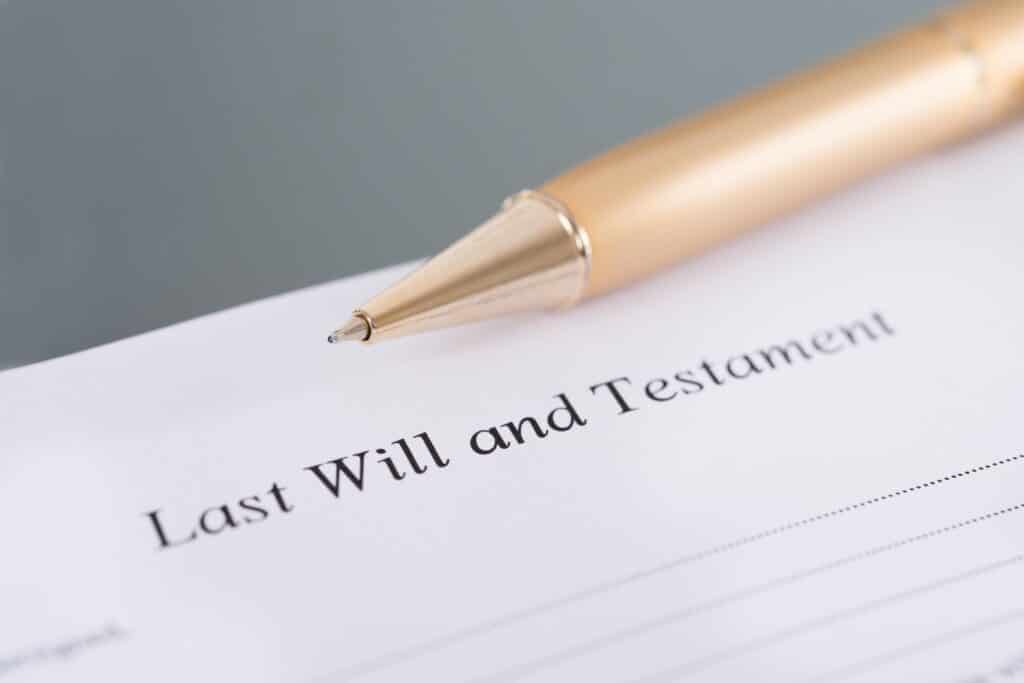The Afterlife of Your Bank Account

When the moment comes to leave this earth, have you asked yourself what happens to bank accounts after death canada? Or do you think that unfinished business will allow you to stay on Earth for a while? The overwhelming majority of Canadians are ill-prepared and leave their loved ones with no sense of what to do with their property. All that is necessary to avoid that is to make a will. While you might want to postpone it to a later date, it’s better to write it beforehand and save you family a lot of trouble.
Contents
Preparing for the Inevitable

If you’re among those who’ve prepared a will, you’re a step ahead in easing the burden for your family. A legal will, created through a lawyer with a free evaluation, is a straightforward way to manage your posthumous affairs. It involves appointing an executor who oversees the execution of your final wishes and the distribution of your assets.
Upon your death, the executor informs the bank and presents necessary documentation like a death certificate. During the probate process, your bank accounts may be temporarily frozen, but the bank can release funds for immediate expenses like funeral costs. After probate, remaining funds are transferred to your estate and then disbursed to your beneficiaries, following the payment of any outstanding debts.
Without a will
Without a will the situation becomes more complicated. Provincial laws will dictate the distribution of all the assets, including bank accounts. This state is known as dying intestate. The government appoints an estate trustee who manages your affairs, and your assets are distributed according to provincial laws. This may leave out some of the family members, like a common-law partner. The bank freezes your accounts during the probate process to eventually release them to your estate and then to your heirs, after clearing any debts.
Postmortem Financial Management
Managing bank accounts after someone’s death in Canada begins with notifying the deceased’s financial institutions. The executor or next of kin provides the required documentation, like the death certificate and the will if there is one. This will initiate the account transfer closure. This way you safeguard the assets and ensure they are managed as per the deceased’s wishes or legal requirements.
The post-death bank account managemen often intertwines with other financial obligations like loans, mortgage payments, and credit card debts. The executor needs to use the estate’s assets to settle these debts before any distribution to beneficiaries can happen.
They must address any tax liabilities with the Canada Revenue Agency, which can include filing a final tax return and paying any owed estate taxes.
Role of a Will and Executor

The executor, named in the deceased’s will, handles all financial matters, including bank accounts. They must present legal proof to gain access to the accounts. It often comes in the form of a grant of probate. The executor ensures that wishes of the deceased are respected and carried out according to the the will.
Joint accounts and beneficiaries
With joint bank accounts, the surviving account holder generally gains full access after the other’s demise. Sole accounts cases are more complex. Funds are either transferred to designated beneficiaries or distributed as per the terms stated in the will.
Payable on death accounts
Some bank accounts are set up as payable on death (POD). It allows for a direct fund transfer to the beneficiary without the need of a probate process. These types of accounts offer a more streamlined way of transferring assets upon death and can be an great element of estate planning.
While managing the financial aftermath of a person’s death in Canada, there are two things that executors must consider. These are debts and liabilities settlement and the handling of tax obligations.
Debts and liabilities
The executor must first identify all debts of the deceased. Creditors have the right to claim against the estate. It means that debts must be settled before asset distribution. This responsibility ensures that all financial obligations are met, preventing legal complications for the heirs.
Taxes and the CRA
The executor’s role goes beyond just asset distribution. It includes handling the deceased’s tax affairs:
- Filing the deceased’s final tax return
- Any taxes due must be paid from the estate
- Managing tax implications
These responsibilities, though sometimes complex, are essential for the lawful and fair distribution of the deceased’s estate, safeguarding the interests of both creditors and beneficiaries.
Estate Planning
Estate planning makes for an easier process for loved ones after one’s passing. The planning includes setting up joint accounts, designating beneficiaries, and ensuring a clear and updated will is in place. Preparations like these will really simplify the financial affairs after death.
[expert_bq id=”6369″]Don’t leave your loved ones without your will, because managing the bank accounts after death in Canada sure comes with a set of challenges in an already challenging time. Plan everything in advance and consult a legal professional if in doubt.[/expert_bq]
What Happens To Bank Accounts After Death Canada FAQs
-
How Can I Ensure My Bank Account Goes Directly to My Spouse After I Die?
The easiest way to ensure your spouse has access to funds is to open a joint bank account. You can also designate your spouse as the beneficiary of your bank accounts. Making a will and naming your spouse as the executor can also streamline the process of managing your estate.
-
What Is a Payable on Death (POD) Designation?
Accounts designated as POD allow funds to transfer directly to the beneficiary after the account owner's death. The beneficiary can then claim the funds by presenting a death certificate to the bank.
-
What Happens to a Bank Account If There's No Will and No Joint Owner?
The next of kin or a close relative should inform the bank of the account holder's death and provide a death certificate. The bank will then usually freeze the account to prevent any transactions for now. Since there is no will, an administrator must be appointed through probate court.


